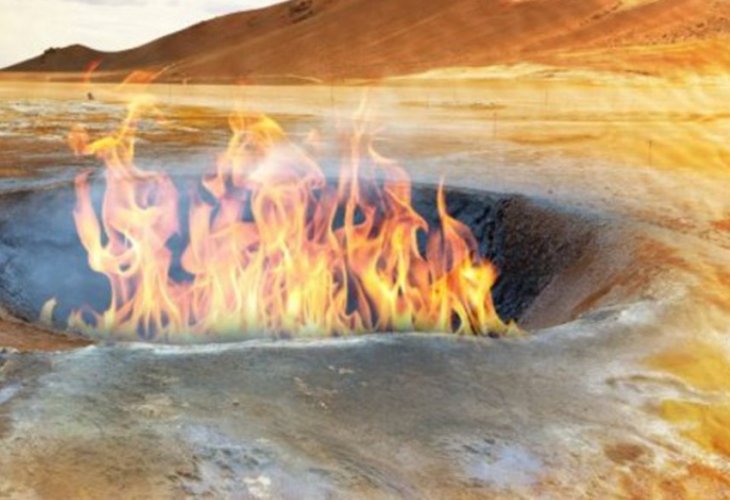Torah Personalities
Korach’s Rebellion Explained: Jealousy, Punishment, and the Power of Teshuvah
Timeless lessons on humility, peace, leadership, and spiritual growth from the story of Korach

Korach was a cousin and contemporary of Moshe. Like all members of the Kehat family, his designated role was to carry the sacred vessels of the Mishkan. Korach, however, desired a position that seemed holier in his eyes, and he became jealous when Moshe — following God’s command, appointed Elitzafan ben Uziel as the leader of the Kohathites.
The Midrash Yalkut Reuveni teaches that a person’s primary task is to serve God specifically from his own place in life. It states:
“Had Korach accepted his elevation through Aaron, just as Yitzchak accepted his fate at the Akeidah… Korach would have become on earth what the angel Gabriel is above, just as Aaron parallels Michael.”
Extraordinary Wealth
The Talmud teaches that Korach possessed immense wealth. In Pesachim, it states that 300 white mules were needed just to carry the keys to his treasure houses.
Where did his fortune come from? The Talmud states: “Rabbi Chama bar Chanina said: Three treasure-stores Joseph hid in Egypt; one was discovered by Korach…”
The Root of His Sin: Pride From Wealth
On the verse “Riches kept for their owner to his detriment,” Rabbi Shimon ben Lakish explains: “This refers to the wealth of Korach.”
Midrash Mishlei teaches further: “Two extremely wealthy men lived in the world: Korach among the Jews, and Haman among the nations. Both listened to their wives — and both fell.”
The Midrash describes how Korach’s wife mocked Moshe's commandments and encouraged her husband’s rebellion, inflaming his arrogance and jealousy until he rebelled outright.
Do Korach and His Assembly Have a Portion in the World to Come?
The Talmud records a debate:
Rabbi Akiva: “They have no portion in the World to Come.”
Rabbi Eliezer: “Regarding them Scripture says: ‘The Lord brings down to the grave and raises up.’”
Another debate follows:
Rabbi Yehuda ben Beteira: “They are like a lost item that is searched for.” (Tehillim 119)
Rabbi Mordechai Yosef Leiner taught that Tehllim chapter 47, recited before shofar blowing, serves as a spiritual repair (tikkun) for Korach and his sons, who composed the psalm.
Korach’s Jealousy Brought Him to Ruin
Rabbeinu Bachya explains: “Jealousy is a wound with no cure… It leads a person from craving wealth, to craving honor, to seeking power, and ultimately to idolatry. If he fails to attain what he desires, his life becomes anguish. Thus jealousy destroyed Korach.”
The Grave Consequence of Discord
The Shelah HaKadosh writes: “See what befell Korach — the severe punishment. Noble lineage did not help him; nor his greatness; nor the honor of carrying the Ark. All perished… Therefore learn to be among the disciples of Aaron, lovers of peace.”
His Eyes Deceived Him
The Midrash asks: “Korach was wise — what led him to such folly? His eyes deceived him: he saw a great chain of righteous descendants emerging from him.”
He foresaw through ruach hakodesh that the prophet Shmuel would descend from him, equal in stature to Moshe and Aaron. But he misinterpreted this vision.
The rebbe of Lublin said: “This teaches that even divine inspiration can mislead a person who does not guard himself properly.”
The Arizal taught that the final letters of the verse ‘Tzaddik katamar yifrach’ (A righteous person will flourish like a date palm) spell KORACH, hinting that he will eventually be repaired and elevated.
Why Korach’s Sons Were Saved
Yalkut Shimoni recounts: When they sat before their father Korach, they saw Moshe approaching. They lowered their eyes out of respect, though this dishonored their father. They said: “Better that we honor Moshe, even if it shames our father.” In that moment, their hearts moved to repentance.
Korach’s sons merited to compose several chapters of Tehillim. One begins: “For the conductor: on shoshanim (roses), of the sons of Korach.”
The Midrash explains that once they repented, they were called roses and beloved ones, for their hearts became soft like roses.

